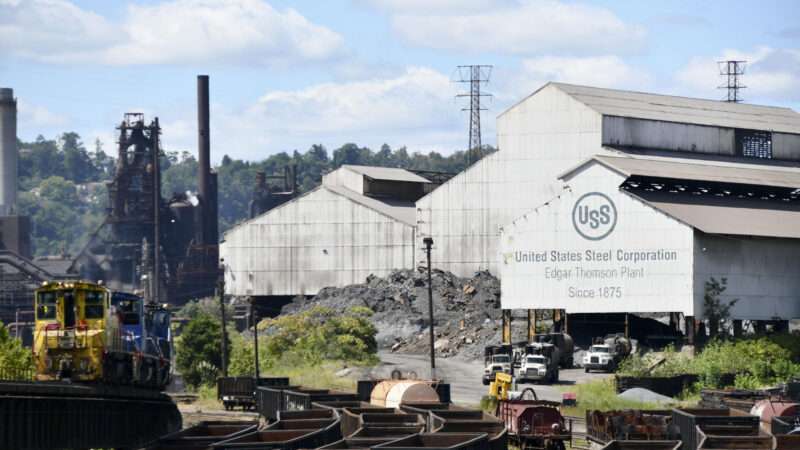Bootleggers and Baptists in the U.S. Steel Deal

As President Joe Biden continues to mull whether to allow one private steelmaking company to purchase another, it’s worth taking a moment to appreciate the bizarre political alliances that opponents of the U.S. Steel/Nippon Steel deal have forged.
Like the American steelmaking company that’s working with a prominent environmentalist group to lobby the White House to block the deal.
The steel company is Cleveland-Cliffs, the Ohio-based company that lost the bidding war to buy U.S. Steel last year. Since then, Cleveland-Cliffs has been using whatever leverage it can find to get the federal government to block Nippon Steel’s $14.9 billion purchase of U.S. Steel—because if Nippon’s purchase doesn’t go through, Cleveland-Cliffs will be well-positioned to swoop in and buy U.S. Steel at a discount.
The full extent of Cleveland-Cliffs’ efforts was detailed by the Pittsburgh Post-Gazette last week. The rival steelmakers allied with the union representing many U.S. Steel employees, called in favors from Sen J.D. Vance (R–Ohio), and lobbied hard both in public and behind the scenes to call the deal into question. Indeed, it was Cleveland-Cliffs CEO Lourenco Goncalves who pushed the idea that Nippon’s purchase of U.S. Steel could somehow threaten U.S. national security, despite the fact that Nippon is a publicly traded company based in Japan, a close U.S. ally. Nonetheless, the Biden administration has taken that claim at least somewhat seriously.
But perhaps the strangest bedfellows in Cleveland-Cliffs’ effort to oppose the U.S. Steel deal are the Sierra Club and a handful of other progressive environmental organizations. They have lobbied Congress and the Biden administration to block the deal, arguing that Nippon’s promise to invest in the expansion of U.S. Steel’s plants will mean more steel production and, as a result, more pollution.
Nippon’s promised investments in aging U.S. Steel plants, like the one in Gary, Indiana, would be “tantamount to exacerbating structural racism,” explained CeCe Grant, the Sierra Club’s industrial transformation campaign director, in a statement in September. That’s because the deal would ensure “decades of locked-in carbon emissions” that would harm the predominantly black community around the plant.
Local officials in communities near some of U.S. Steel’s Pennsylvania facilities would love to have that problem. Mayors in the Mon Valley are some of the loudest cheerleaders for the U.S. Steel deal because they know foreign investment in those plants will mean more jobs and economic opportunities.
This whole thing is effectively a modern twist on the classic political/economic parable of “bootleggers and Baptists.” In the original example, coined by economist Bruce Yandle in 1983, both Baptists and bootleggers support Prohibition, even though they have very different motivations. For the Baptists, the government’s attempt to limit consumption of alcohol is a religious and moral issue. For the bootleggers, Prohibition was a way to artificially limit supplies and therefore increase prices for the booze they were making and selling.
The Sierra Club is the Baptist in this dynamic, while Cleveland-Cliffs is the bootlegger eager to profit off a misguided governmental intrusion in the marketplace.
Prohibition didn’t accomplish what the Baptists hoped—people still drank booze; they just had to go to the bootleggers to get it. Biden blocking the U.S. Steel sale to Nippon will have the same effect from the Sierra Club’s perspective. America will still make steel, but Cleveland-Cliffs will be in a position to corner the domestic market.
What happens to U.S. Steel should be none of the federal government’s business. The most important lesson from this whole saga is that when the government has the power to decide how private companies handle their affairs, there will never be a shortage of interested parties willing to influence that decision.
The post Bootleggers and Baptists in the U.S. Steel Deal appeared first on Reason.com.
